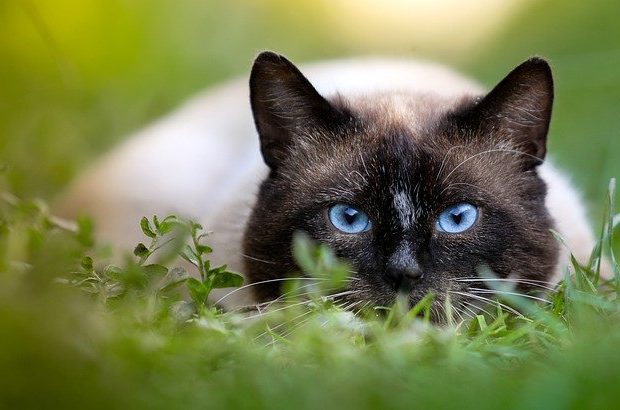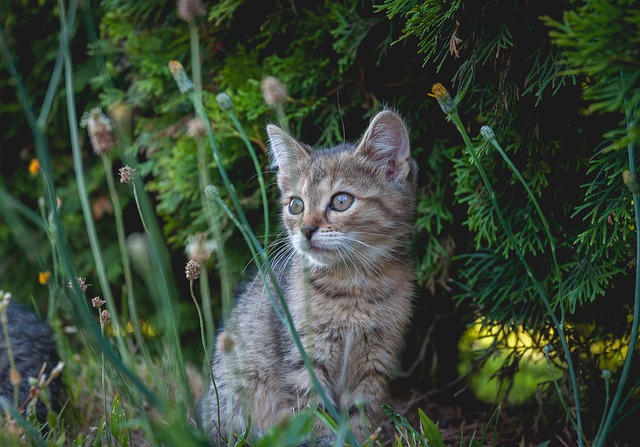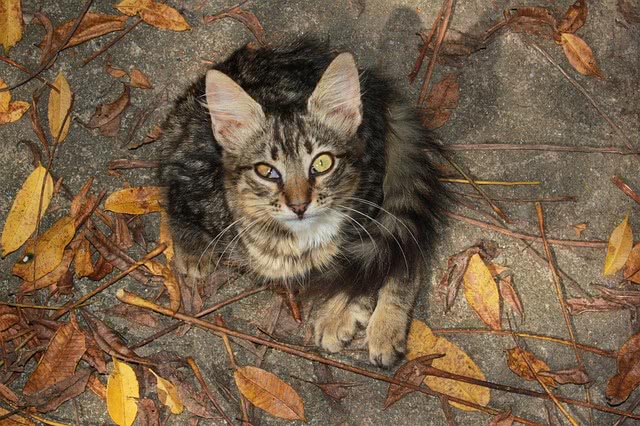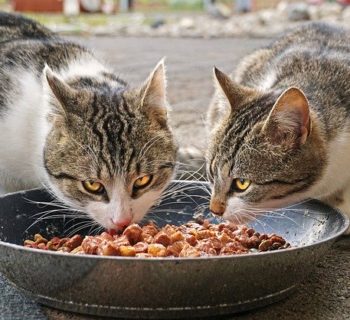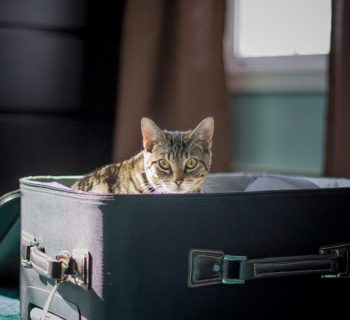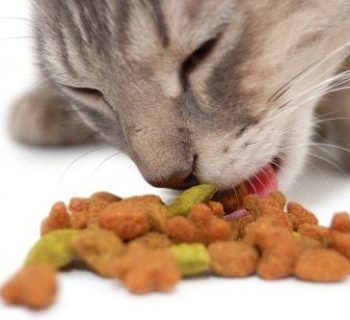For many feline owners, a cat bringing home a kill is a familiar and even a common experience. For those unfamiliar with this behavior or are new cat owners, it can seem bizarre and leave anyone confused the first time it happens.
For one, fur baby has all he can eat and drink inside and all the toys he can play with. It’s only normal to wonder why he has to hunt for these animals. However, you can rest assured that this is a purely natural behavior. Despite thousands of years of domestication, our feline friends’ prey-drives remain present and active, even though it may seem more pronounced in some than others.
While the prey-drive and hunt (prey instinct) are natural, your house cat clearly isn't doing it for survival. At least not with all the food it can enjoy indoors. He is just displaying a natural instinct to hunt and kill an animal. It is also not because your cat is “bad” - a cat has to do what a cat has to do.
So why do cats bring you dead animals? Read on for all the answers.
Table of Contents
Why Exactly Does He Bring the Dead Animals to You?
Cats are pack animals and, contrary to what many believe, are great sharers; they love to share! Your feline friend wants to share everything with you. Granted, being gifted a dead animal isn't the most beautiful thing but remember; it's the thought behind the action that counts.
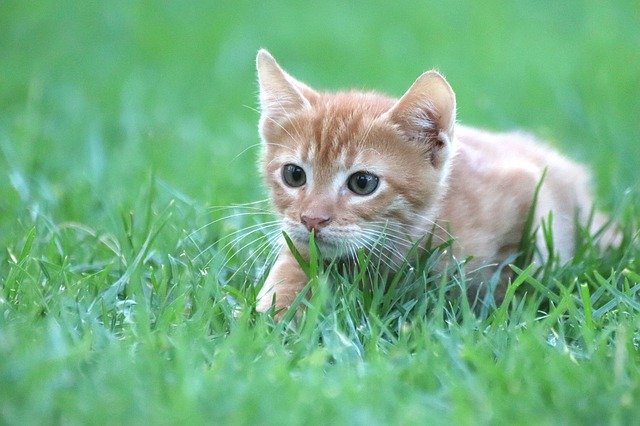
Reasons Your Feline Brings Home Dead Animals
Apart from the prey drive being natural to cats, there are other reasons your cat hunts. We outline some of these reasons below.
Cats Hunt to Feed the Kittens
If you have a cat with kittens, you can expect hunting to be a regular part of their lives even if you provide them with meals.
This is also particularly true for cats with unrestricted or minimally restricted access to the outdoors. Interestingly, in multi-cat households, mother cats may not have to do the hunting herself every time to feed their kittens. Other family members can sometimes take on the responsibility of bringing home the bacon and then share the bounty with others in the family.
For Fun and Mental Stimulation
While your cat may have all he can eat inside, he can still take up hunting for recreational purposes. Like many of our fur babies, our felines thrive on mental stimulation. The chasing and stimulation that hunting provides can sometimes be the lure. Not hunger, not “sheer evilness” but just the thrill derived from the exercise.
To Teach Hunting Skills
When our felines with kittens bring home dead or semi animals, it can sometimes be so their offspring learn.
The mother cat may bring home a dead animal today and consume it with her kittens. The next day, however, she can bring the catch half-killed. This is so her little ones complete the process and, over time, improve their hunting skills until they can hunt unaided.
Hunting, as said earlier, remains a part of the feline tradition despite thousands of years of domestication. Regularly hunting and bringing home the catch will help pass on the skill and keep the tradition alive.
Needs a Safe Place to Eat
Although many indoor cats will not gobble up their bounties, some do, and where else could be safer and free of threats than your home? While it’s true that cats are avid hunters themselves, they are small and are therefore equally prey to larger carnivores.
So, it’s safer and less chaotic for everyone if they consume their kills on your couch, kitchen, or even on your doorstep.
They’re Uncertain
Another common reason our felines may bring their prey home is the lack of certainty. Until a cat is sure that his prey is really dead, he may have to continue to toy with it. Even though the act may seem like torture, it isn't. It's just a cat trying to make sure that his prey is dead and won't try to fight back.
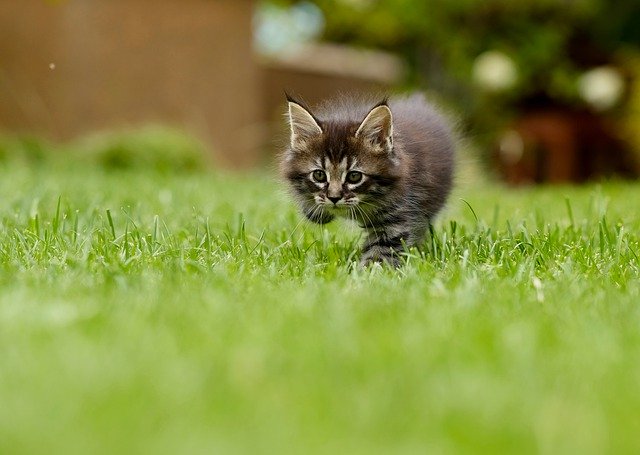
How to Stop Your Cat From Bringing in Dead Animals
While the motivation behind the act is often pure, picking up dead animals here and there can get tiring. How then can you stop your cat from bringing in his kill? Try out the tips and techniques below.
Bell the Cat
Our felines need all the silence and agility they can muster to hunt prey successfully. While both are important, silence is crucial. When you have a bell attached to their collars, it alerts the target of an impending attack to give them enough time to escape. If there’s no prey to hunt, there’ll be no dead animals in your home.
What’s more? You also help to spare the outdoor wildlife population! That said, when picking a bell collar or any breakaway collar, you want to ensure you choose a type that is genuinely “breakaway” to allow your cat to leave without injuries if he ever gets caught in a tree or anything else while outdoors.
Redirecting the Prey-Drive With Play
Although a natural prey-drive cannot be totally eliminated (not recommended), you can redirect that energy and behavior. Instead of letting your cat roam free alone, engage him in other fun activities. This would help to reduce the hunting and also provide your cat with the exercise he needs for mental and physical stimulation.
Get as many helpful toys as possible or improvise. This could mean finding fishing-styled toys or stuffed animals for your cat to “kill” instead of a real animal. A laser pointer can also be very helpful for keeping your cat exercised and satisfied enough to stay indoors.
Know When to Let Your Cat Outside
Our felines are naturally independent animals and because of this, keeping watch of their movements may be impossible when they’re outside.
However, what you can do is control when he goes in and out. This will help you control/reduce the number of prey he brings back. Again, you’ll also be helping the smaller animals, and these are usually more prone to your pet’s attacks at sunrise and sunset.
Try to keep your cat inside at sunrise and sunset daily, and this way, the chances of your cat bringing home prey will be a lot lower.
Discard Dead Animals Promptly
Try not to fuss over the dead animals your feline brings home. If you do, your cat will connect his kills with getting your attention in no time. This would encourage him to continue bringing home these animals.
When he brings his kills home, dispose immediately and give him a toy in its place. Done consistently, your cat will remember that you do not "jump in glee" at the sight of the" gifts," and it would discourage him from "hunting for you" in the future. It will also help him associate fun time with his toys more.
''Dead animals are not the only things cats will bring you………..''
If you own an indoor cat, it may still bring you other things. Thankfully, they’re not as shocking as dead animals. Some items your cat may bring to you can include their favorite toys, shoes, and even clothing. Cats may bring just about anything as a replacement for real kills if they’re not allowed outdoors and as long as they can easily carry it like they would a prey.
If your cat is allowed outdoors, dead animals are not the only things it will bring to you. You can expect live, breathing animals, and as said earlier, these are just so their young ones or even you (you are a part of the pack) can learn how to hunt or improve their hunting skills, among other reasons.
Final Thoughts
While it is natural to ask why do cats bring you dead animals, despite being provided with all he needs, you also have to be understanding of this behavior. We have domesticated our felines for many years, but predator instincts remain and will kick in regularly.
Leaving you dead animals is one way your female feline lives out her role as a mother and a teacher to her kittens and other members of the pack which includes you.
Instead of yelling to stop the behavior any time you’re gifted a dead animal, discard it immediately and also remember that the thoughts behind the act are nowhere near evil. Gradually redirect your feline’s not-so-endearing behavior through play, toys, and outdoor trips. Remember that as much as you would wish for your kitten to stop, you can only control the behavior, not eliminate it. Hopefully, the tips shared above will help you stay on top of the situation.
Tell us, does your cat bring you animals? If he does, which are his favorites, and how have you tried to manage the behavior? Share in the comment section below.
About the Author
Kirsten Heggarty
Kirsten created The Pet Handbook with the aim of sharing her knowledge about pets, pet food, healthy habits, and more. All of her advice is based on years of her own experience with her pets, and feedback that she has received from grateful readers about her tips. If you want to know more please read the About Me page.

